Beyond General Waste: Your Guide to Sustainable Food, Plastic, and E-Waste Management for UK Businesses
- Home
- Blog
For UK businesses nowadays, proper waste management is essential, not just a choice. Due to tougher rules such as Simpler Recycling, increased environmental concerns, and consumers increasingly wanting eco-friendly practices, companies need to change how they deal with waste. At UK Waste Consultancy, our specialty is assisting businesses in facing these issues with bespoke, eco-friendly waste solutions. This guide looks at three key waste areas—food, plastic, and electronic waste—and gives actionable methods to ensure adherence to rules, lower expenses, and promote a more sustainable future.
1. Food Waste Management: Turning Waste into Opportunity
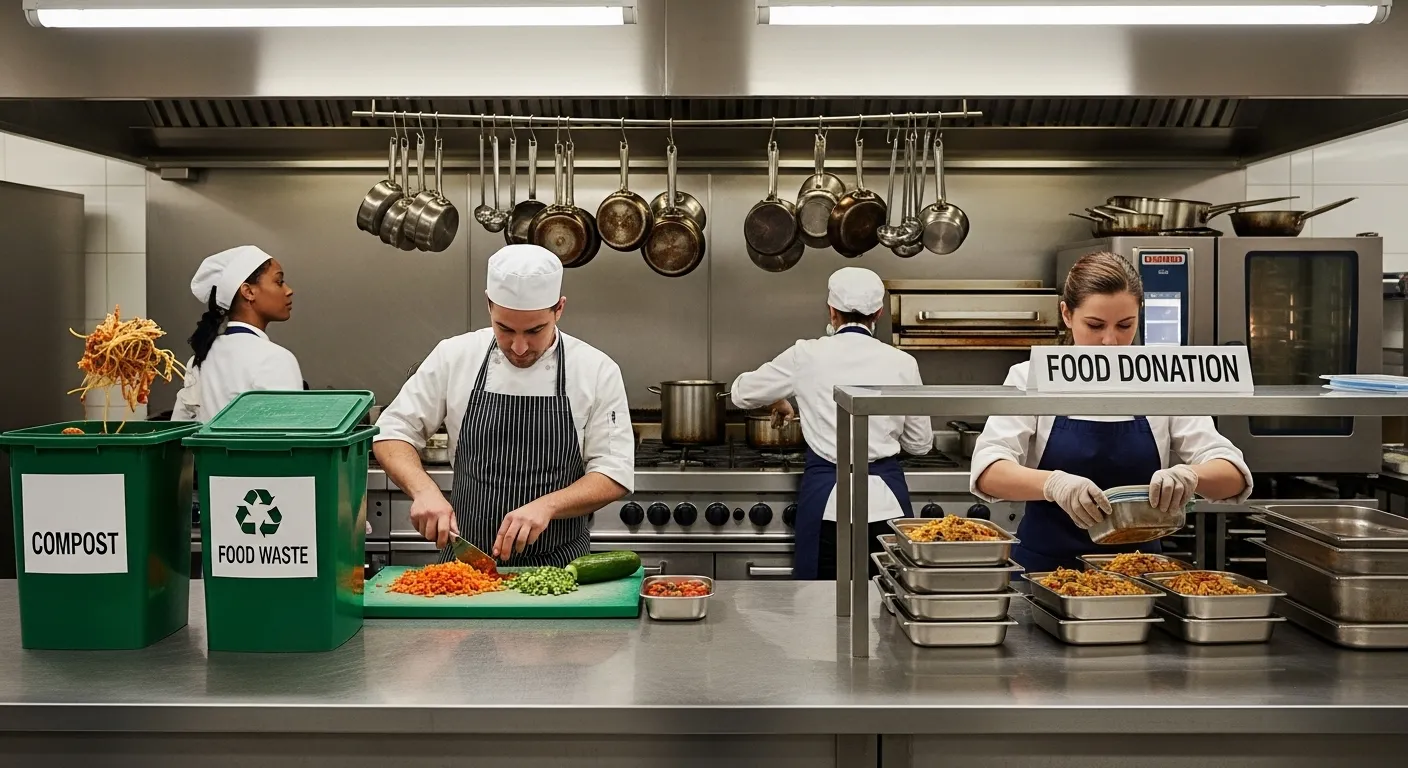
The Challenge of Food Waste
Businesses in the UK are very involved approximately food waste. When food waste sent to landfills, it breaks down without oxygen, which releases methane, a greenhouse gas that is much more potent than carbon dioxide. Throwing away meals in landfills not best hurts the surroundings, but it also wastes money and resources. Businesses in the hospitality, retail, and catering industries want to control meal waste nicely for both moral and economic reasons.
UK Regulations: Simpler Recycling Takes Effect
The UK’s Simpler Recycling initiative is remodeling how companies take care of commercial food waste. Key deadlines include:
- By March 31, 2025: organizations with 10 or more full-time equivalent (FTE) personnel need to set up separate meal waste collection.
- March 31, 2027: Micro-agencies (fewer than 10 FTE personnel) need to comply with extra necessities for accumulating plastic films.
You can’t blend meal waste with everyday trash anymore, and in case you do, you can get a large fine. Recycling food waste earlier than it would otherwise is now required by way of regulation, and for the environment.
Sustainable Solutions for Food Waste
To tackle food waste efficiently, consider these techniques: –
- Reduce on the Source: Minimise waste meals series through optimising inventory, adjusting element sizes, and donating fit to be eaten to charities like FareShare.
- Dedicated Food Waste Collection: Work with a certified waste management corporation to pick up food waste from your commercial enterprise. This makes sure that the policies are followed and the items are separated efficiently.
Recycling and valorising:
- Composting: Turn food scraps into compost that is rich of vitamins that may be utilized in landscaping or farming.
- Anaerobic Digestion (AD): is the maximum common method to recycle food waste in the UK. It turns meal waste into biogas (a renewable energy source) and digestate (a fertiliser), which enables the circular economy.
Actionable Steps:
- Teach Employees: Teach your workers the way to separate food waste efficiently, specifically inside the kitchen and break rooms.
- Use clean boxes: To hold food waste from getting mixed up, supply them with labelled packing containers.
- Work with Professionals: For custom food waste control answers that are felony and environmentally friendly, work with UK Waste Consultancy.
2. Plastic Waste: From Problem to Resource
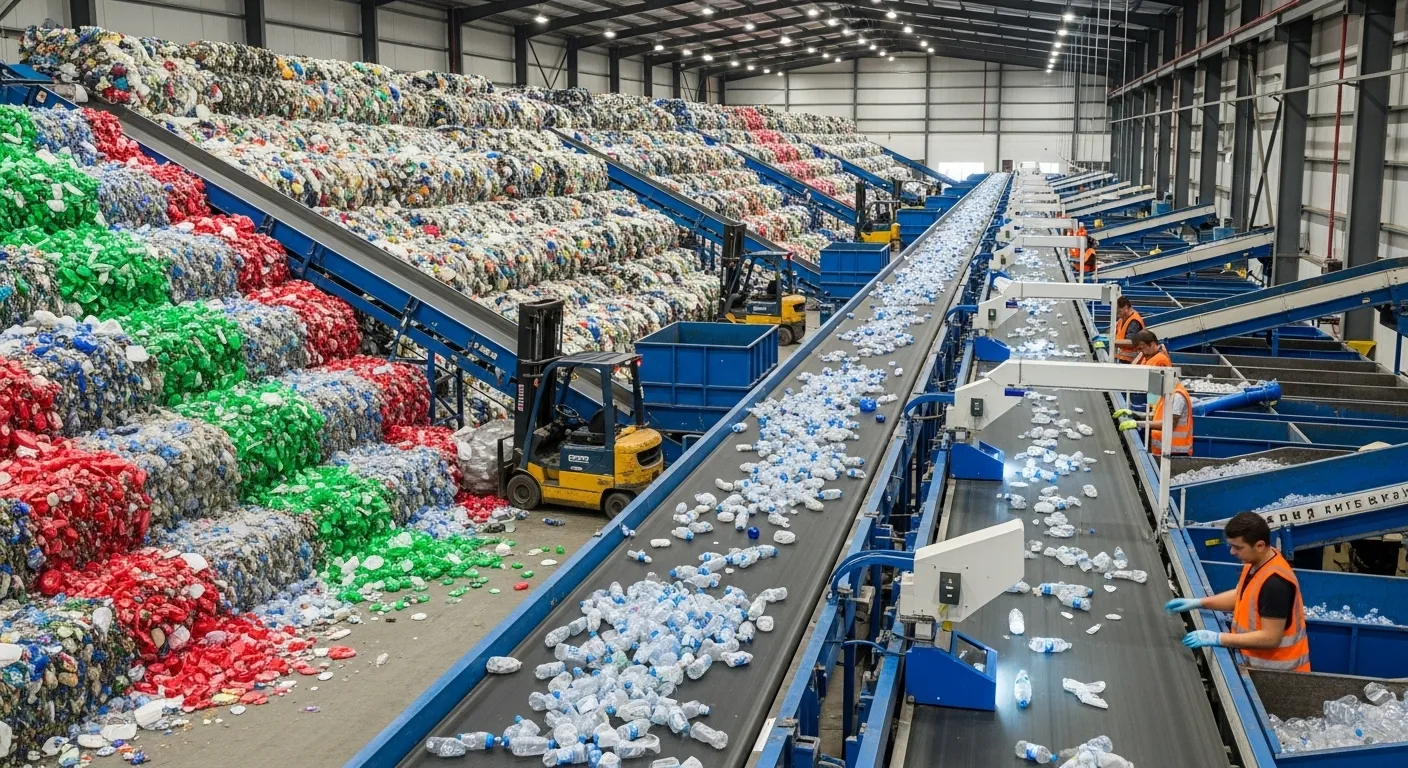
The Problem of Plastic Waste
Plastic waste is a hassle that won’t go away. Because it lasts see you later, it can ultimate for loads of years before breaking down into dangerous microplastics. Businesses have a tough time managing plastic waste due to the fact that there are so many extraordinary kinds of plastics. For instance, PET bottles, HDPE packing containers, and bendy films all require extraordinary recycling techniques. The UK’s Plastic Packaging Tax makes it even more attractive to apply recycled substances, which is why industrial plastic recycling is so vital.
More than just recycling
Putting all your plastics in one bin can often lead to infection, which makes recycling much less effective. By March 2027, the Simpler Recycling application will require separate collections of plastic moves. This makes it even more essential to address plastic waste well.
Sustainable Plastic Waste Solution
- Reduce and Reuse: Use less plastic via switching to reusable options like strong boxes or refillable structures, and work with your suppliers to cut down on packaging.
- Good Separation: To hold them from getting dirty, maintain rigid plastics (like bottles and trays) and bendy plastics (like movies and bags) apart.
- Recycling for particular purposes: Recycling of dry mixed substances: If your waste partner has advanced sorting abilities, this is ideal for common plastics
Specialised Recycling:
- Dry Mixed Recycling: Suitable for commonplace plastics if your waste companion has superior sorting abilities.
- Separate Streams: For groups with high plastic volumes, such as distribution centres, separate streams like baled film,s are best.
- Emerging Technologies: Innovations like chemical recycling (e.g., pyrolysis) are transforming difficult-to-recycle plastics into uncooked materials, imparting future-proof solutions.
Actionable Steps
- Conduct a Waste Audit: Identify the sorts and volumes of plastic waste your commercial enterprise generates.
- Educate Employees: Use clean signage and schooling to make sure proper sorting and minimise contamination.
- Optimise Supply Chains: Collaborate with suppliers to lessen plastic packaging or switch to recyclable alternatives.
3. E-Waste: Navigating Hazards and Opportunities
The Problem of E-Waste Getting Worse
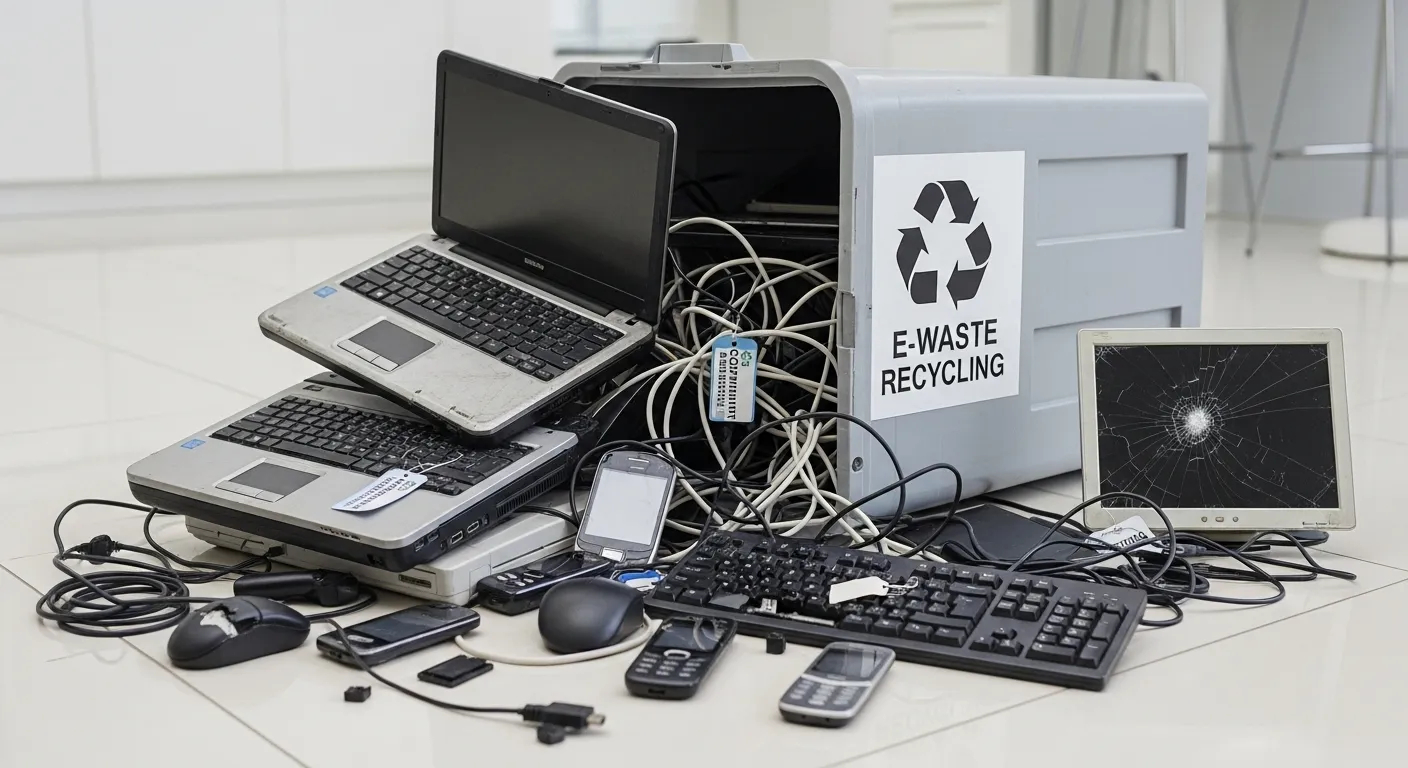
E-waste, which includes the whole thing from laptops to kitchen appliances, is the fastest-developing type of waste internationally. If not thrown away effectively, hazardous electronics like lead, mercury, and cadmium can be very harmful to the environment. E-waste recycling UK is an incredible danger due to the fact that e-waste contains treasured substances like gold, silver, and rare earth elements.
WEEE Rules within the UK
The 2013 Waste Electrical and Electronic Equipment (WEEE) Regulations in the UK put strict regulations on businesses:
- Proper Disposal: E-waste must no longer be mixed with ordinary trash; it must simply be dealt with by using Approved Authorised Treatment Facilities (AATFs).
- Data Security: To comply with GDPR and hold records securely, IT equipment desires to have certified data destruction.
- Producer Responsibility: Starting in January 2025, UK importers will have to do extra to make certain that non-UK products meet WEEE requirements.
WEEE compliance is important because not following the rules can lead to fines and damage to your reputation.
Sustainable E-Waste Solutions
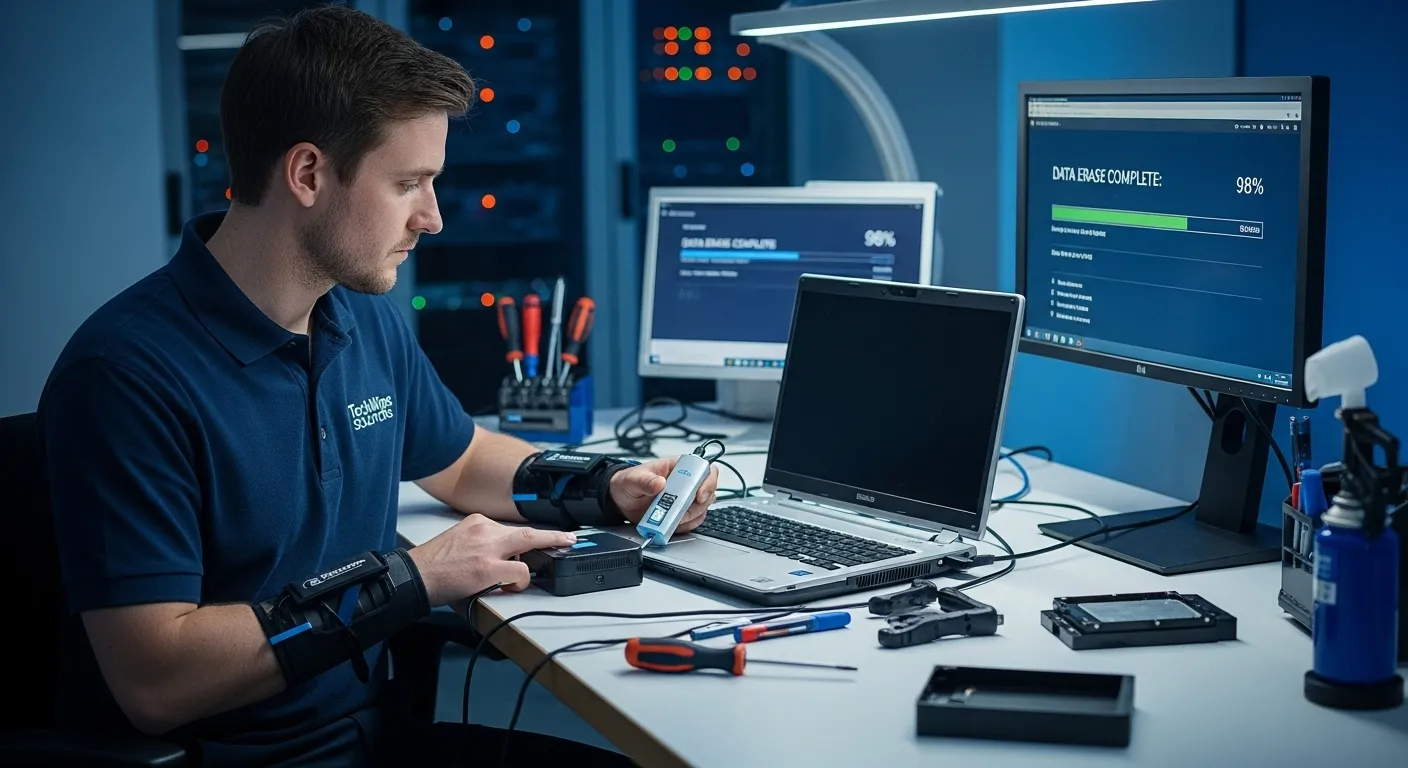
- Reuse and Refurbishment: Extend the lifestyles of electronics via repairs, upgrades, or donations to reduce electronic waste disposal.
- Partner with certified AATFs to: Safely dismantle electronics and take care of unsafe additives. Recover precious materials through superior sorting and refining. Provide audit trails and Certificates of Destruction for compliance.
- Centralised Collection: Set up stable series factors for dangerous electronics inside your premises.
Actionable Steps:
- Choose Certified Recyclers: Ensure your provider is an AATF for compliant e-waste recycling UK.
- Secure Data Wiping: Prioritise certified statistics destruction for the IT system.
- Streamline Processes: Establish clean internal protocols for e-waste collection and disposal.
A Holistic Approach to Sustainable Waste Management
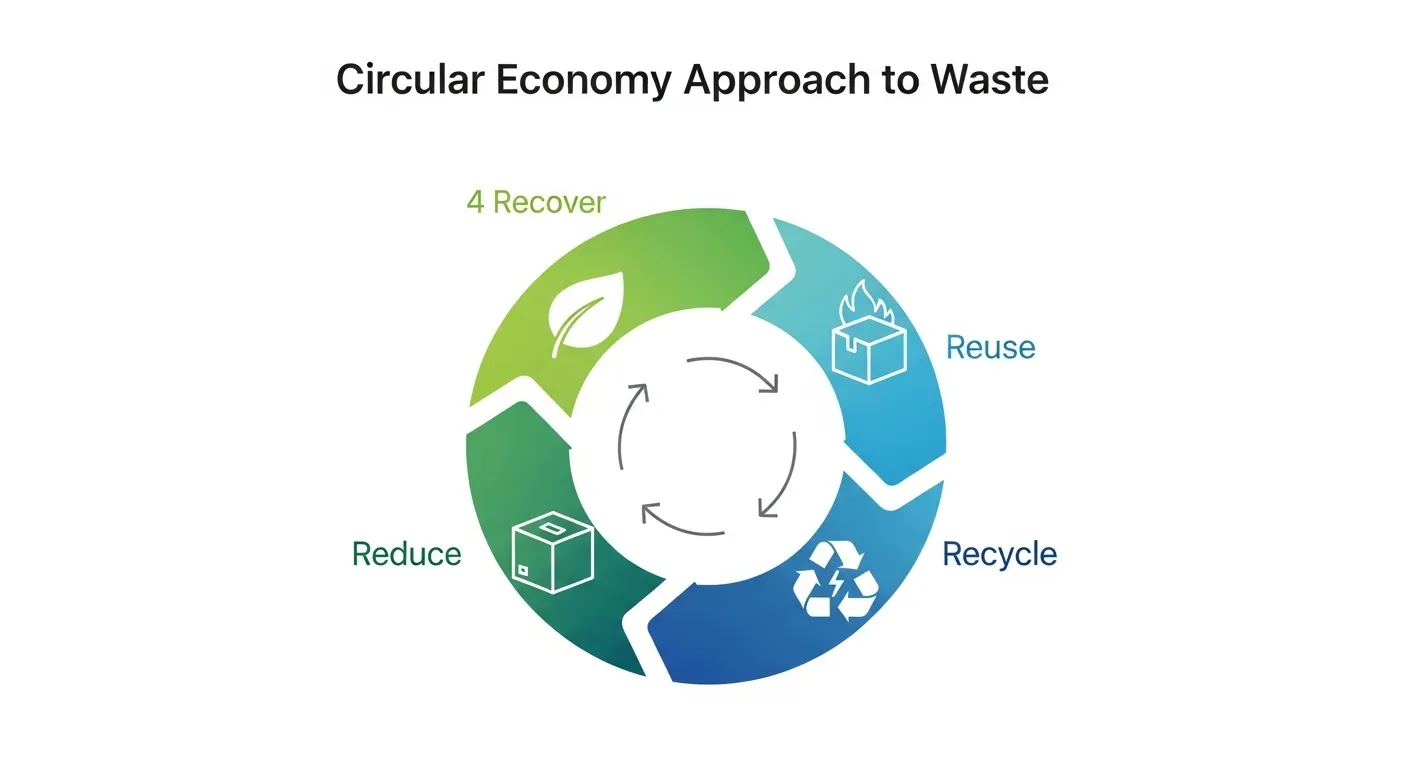
Effective waste control is going past person streams—it’s approximately embracing the circular economy. By addressing food waste recycling, plastic waste challenges, and e-waste recycling UK, groups can:
- Cut Costs: Reduce landfill taxes and disposal prices.
- Boost Reputation: Appeal to eco-conscious clients and stakeholders.
- Drive Sustainability: Conserve resources and combat weather trade.
Partner with UK Waste Consultancy
Navigating UK waste guidelines, from Simpler Recycling to WEEE compliance, can be complex. At UK Waste Consultancy, we simplify the system with tailor-made answers for commercial meals waste collection, industrial plastic recycling, and e-waste recycling in the UK. Our professional waste audits and sustainable techniques help groups throughout London and the UK live in compliance, shop sustainably, and lead the way in sustainability.
Ready to transform your waste management? – Contact Us Today:-
